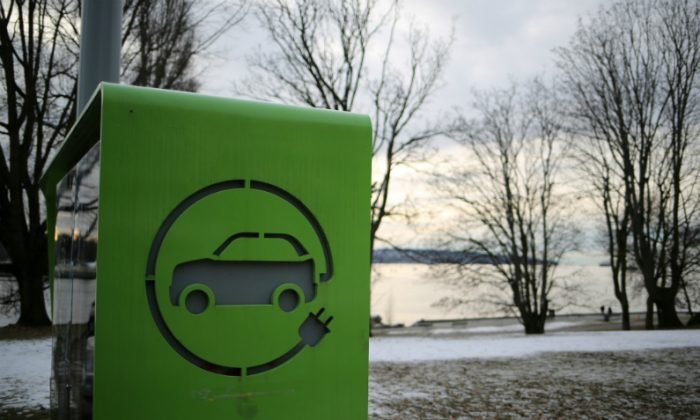PBO: Ottawa’s 2030 Electric Vehicle Sales Target Requires 31 Percent Cost Reduction
The ownership costs of zero-emission electric vehicles (ZEV) would need to decrease by one-third to meet the federal government’s 2030 EV sales target, as outlined in a recent report from the Parliamentary Budget Officer (PBO).
“Assuming that preferences, technology, and policies remain unchanged from a baseline scenario without the standard, we estimate that the ownership cost of battery-electric vehicles (BEVs) would need to drop by 31 percent to reach the ZEV sales target of 60 percent by 2030,” stated the report released on Aug. 29.
Last year, the federal government announced a mandate for auto manufacturers to maintain a ZEV market share of 20 percent by 2026, 60 percent by 2030, and 100 percent by 2035.
According to the PBO report, achieving these targets would necessitate a 9 percent reduction in ZEV ownership costs by 2027, 17 percent by 2028, 20 percent by 2029, and 31 percent by 2030.
To comply with the government’s regulations, automakers will receive credits under the Canadian Environmental Protection Act for the sale of EVs. Manufacturers can accumulate excess credits to meet future targets or trade them with companies that fall short. Additionally, manufacturers can fulfill up to 10 percent of their required credits each year by investing in public fast-charging stations.
The report suggests that meeting the targets may require shifts in consumer behavior, new policy initiatives, price adjustments by manufacturers, or unexpected technological advances. It also predicts an increase in the market for L2 and L3 charging ports by 33,900 and 4,700 units, respectively, by 2023.
Environment Minister Steven Guilbeault has described the government’s strategy as “skating to where the puck is going,” noting the increasing consumer interest in EVs.
The report also revealed that 75 percent of Canadians perceive EVs as “too expensive,” 59 percent believe they perform poorly in cold weather, and 56 percent think they have limited range on a full charge.
The Canadian government has made substantial investments in EVs, allocating over $46 billion towards 13 electric vehicle, battery, and battery component manufacturing projects since 2020. This includes subsidies for facilities in cities like St. Thomas and Windsor, Ont.





